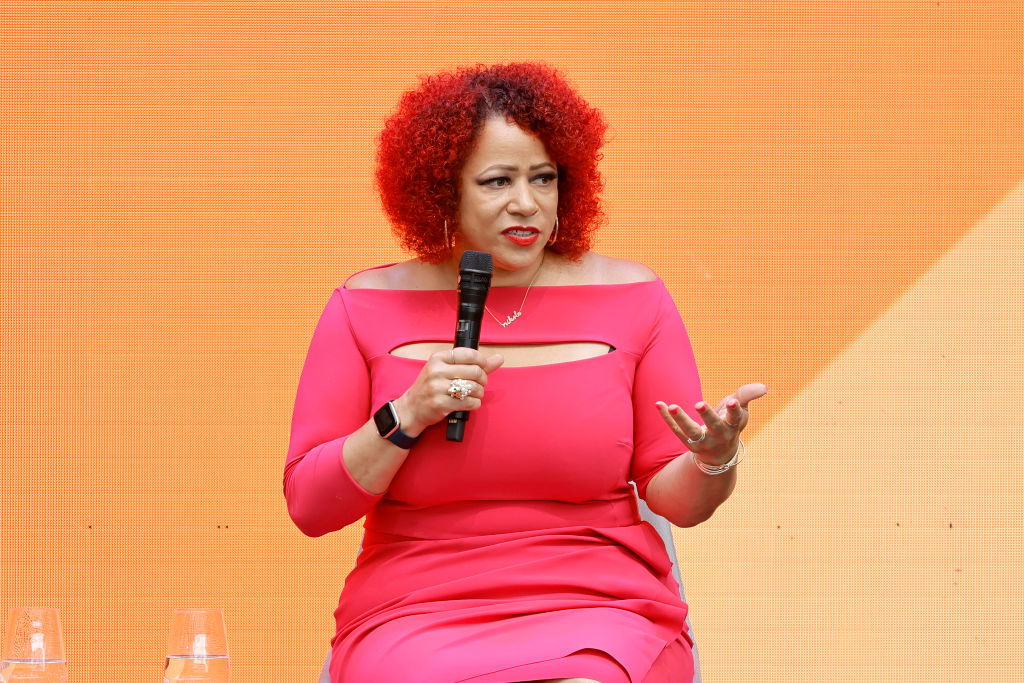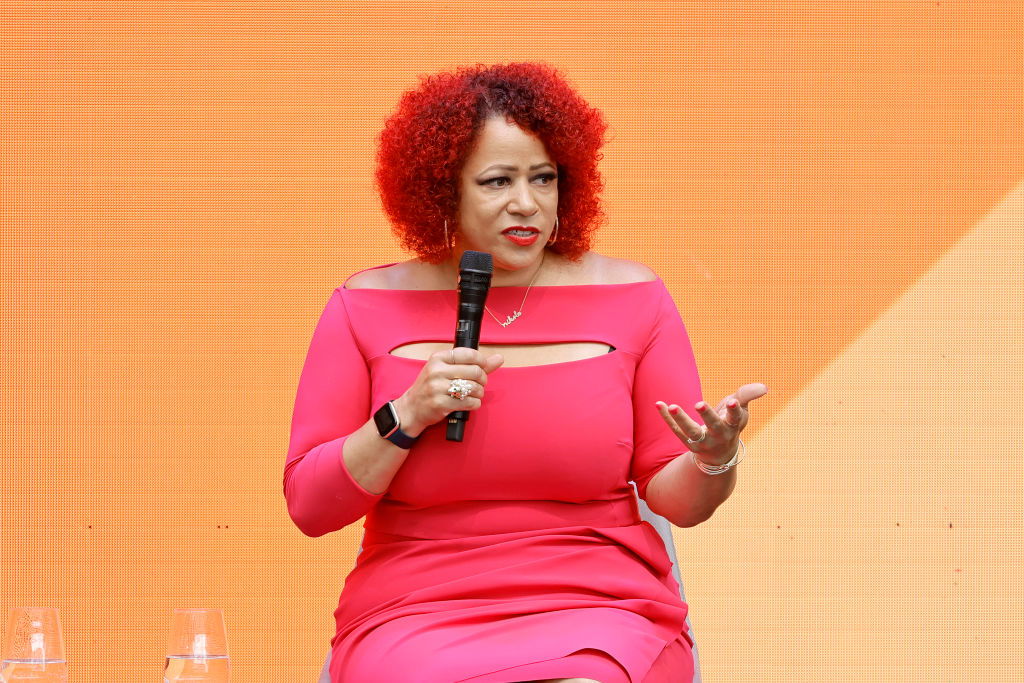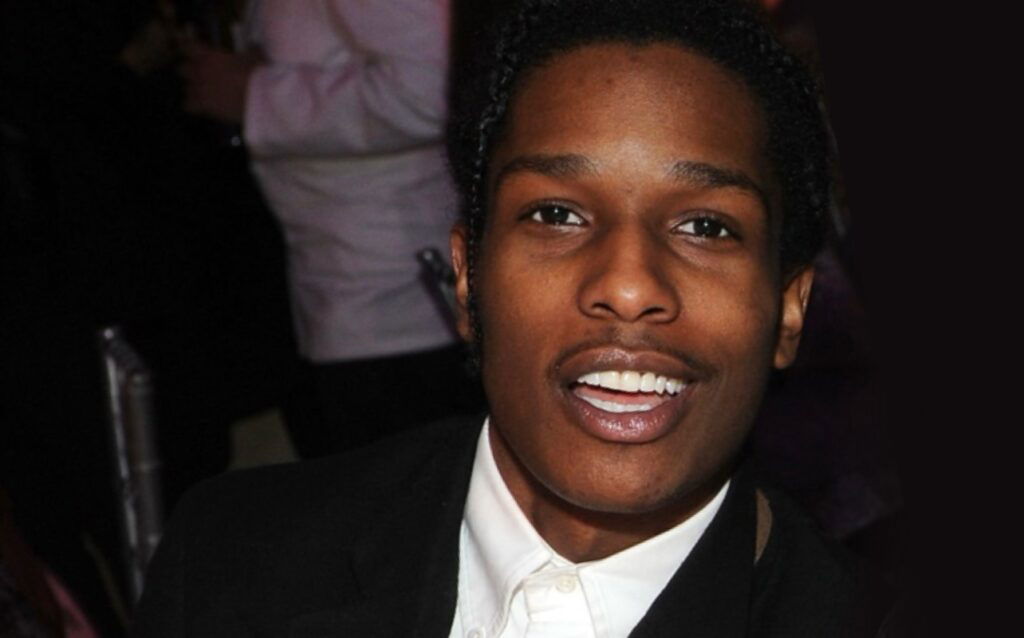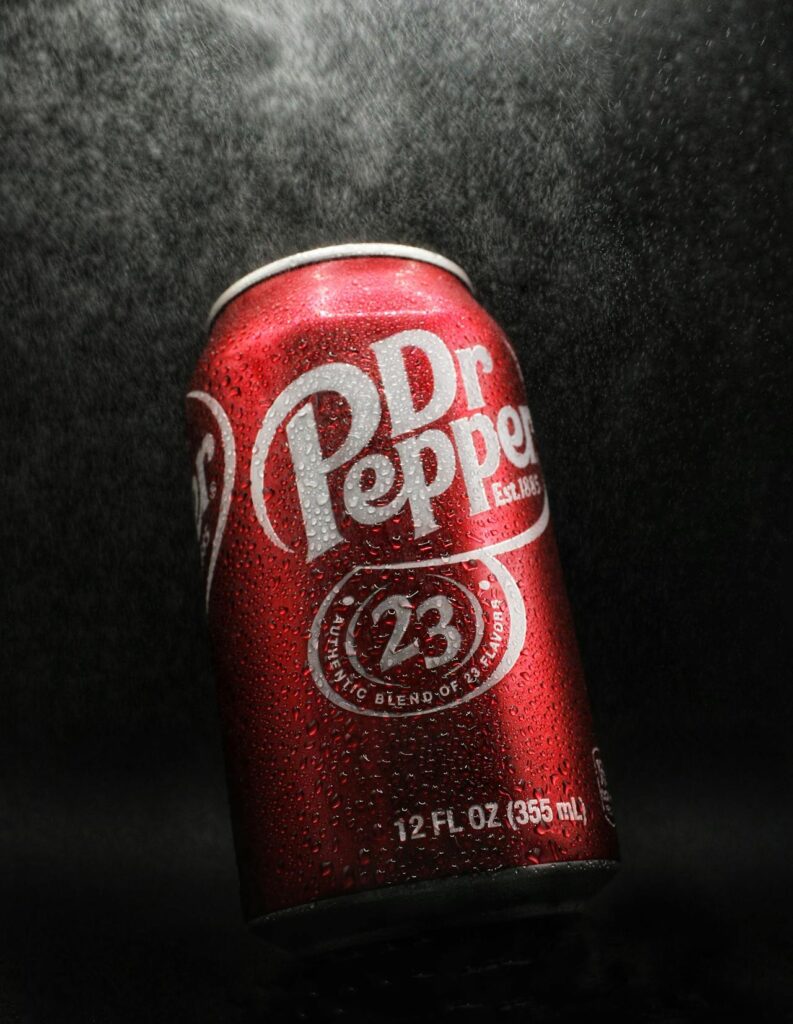
August 19, 2025
Nikole Hannah-Jones won’t sit by and allow Jillian Michaels to spread “harmful nonsense” about the painful realities of slavery.
Nikole Hannah-Jones is sounding off in response to Jillian Michaels’ recent claims that “less than 2% of white Americans owned slaves.”
The 1619 Project creator took to Instagram Aug. 18 for an impromptu history lesson in response to Michaels’s controversial statements during a recent panel on CNN NewsNight with Abby Phillip. According to Hannah-Jones, the times are “far too dangerous” to allow “harmful nonsense” to spread in ways that legitimize “the erasure of our history.”
“I have to first state that the times are far too serious and dangerous for us to lend our platforms to harmful nonsense,” Hannah-Jones said at the start of her nearly eight-minute video. “It’s simply irresponsible with everything that’s happening in this country to have someone as credentialess as Jillian Michaels on a major network show legitimizing the erasure of our history.”
Hannah-Jones criticized the “right-wing framing” in Michaels’s Aug. 14 remarks, which claimed that “less than 2% of white Americans owned slaves” and that “slavery is thousands of years old.” Before breaking down the claims, the investigative journalist cautioned her followers that what she was about to share would be ‘a lot.’
“You see, this is how numbers and data, though technically true, can also be lies,” Hannah-Jones said. “And this is why we can’t let bad faith actors set the parameters of the debate or of our collective understanding.”
While Michaels’ claim was “technically incorrect,” Hannah-Jones took it into account when making a modern-day comparison to the percentage of Americans who own social media or technology companies. While only a small number, Hannah-Jones noted the large influence they can have on America as a whole.
“It’s a tiny percentage. I’m doubtful if it’s even 1% of Americans. And yet no one would credibly argue that social media companies are not ubiquitous across American life, that they don’t play a major influence on our political, social, and economic life in America,” she explained.
Before bringing the modern example back to her focus on slavery, Hannah-Jones also noted how most of the owners of major American tech companies are “amongst the wealthiest in the world and demonstrate how a small cadre of super wealthy men can have an outsized impact on American politics and culture.”
“So if we want to play the numbers game, the much more important measure is what percentage of Americans owned slaves? No. But what percentage of those in power did?” Hannah-Jones said.
Hannah-Jones countered Michaels’s remarks with historical evidence, pointing out that multiple U.S. presidents, members of Congress, Supreme Court justices, and even every figure featured on American currency were enslavers. She also highlighted how cotton, produced through slave labor, accounted for half of U.S. exports at the time, and how wealthy white enslavers built banks and businesses on the backs of slavery.
By the Civil War, the U.S. held the largest enslaved population in the world. Hannah-Jones argued that Michaels’s attempt to minimize these truths disregards the lived experiences of enslaved people and their descendants and undermines an honest acknowledgment of America’s history.
“This is simply undeniable. Without slavery, our nation would be unrecognizable to us. We cannot let them choose the parameters of the conversation in order to obfuscate the truth. That is disinformation,” Hannah-Jones said.
“And the times are too serious for us to proliferate a simplistic, unsophisticated, and childish understanding of the history of slavery in the United States because they are using this mythology to justify erasing our history because they want to erase our rights.”
Her video response came just days after Michaels appeared on CNN, where she defended Donald Trump’s call for a review of Smithsonian exhibits to ensure they “celebrate American exceptionalism, remove divisive or partisan narratives, and restore confidence in our shared cultural institutions.” Michaels argued that many U.S. museum exhibits unfairly link “imperialism, racism, and slavery to just one race.”
Hannah-Jones, however, wasn’t about to let that narrative slide.
RELATED CONTENT: ‘The 1619 Project’ Has Been Adapted Into Two Books, Including One For Kids





